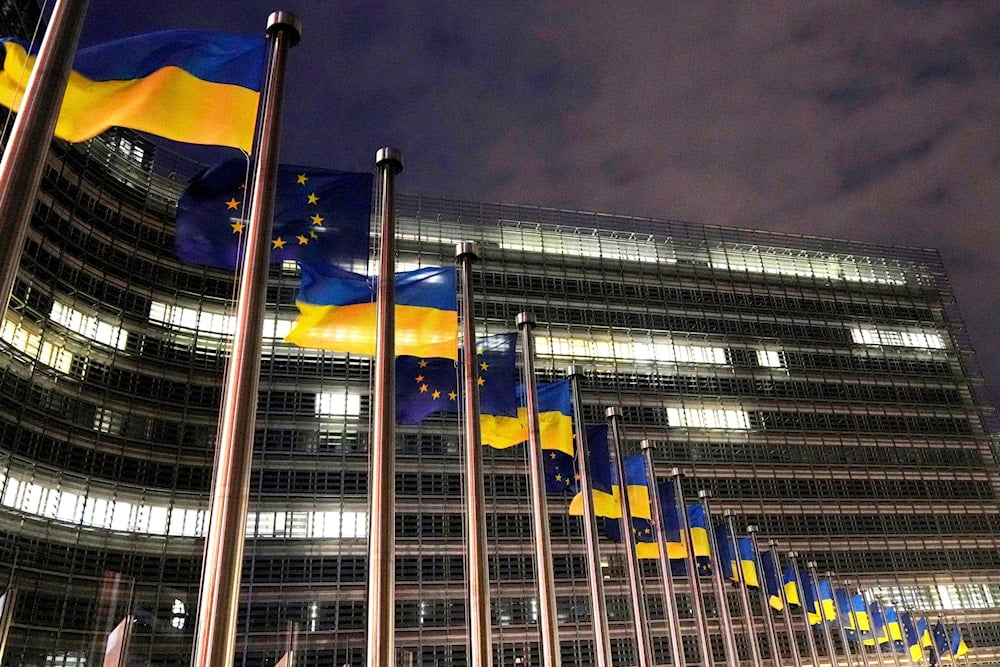Ukraine may use reparations loan to buy weapons outside Europe
The EU proposes using frozen Russian assets to fund Ukraine’s military and budget amid the ongoing conflict with Russia.
-

The European Union and Ukrainian flags flap in the wind to mark the third anniversary of Russia's full-scale invasion of Ukraine outside EU headquarters in Brussels, Monday, Feb. 24, 2025 (AP)
The European Commission has suggested that Ukraine use a portion of a planned 140 billion euro reparations loan, which is funded from frozen Russian assets, to purchase weapons from outside the EU, according to documents sent to member states of the commission.
A Reuters review of the paper on Friday revealed that it outlines the possible design of a plan from the EU's executive body, which would split the loan into two parts, with the larger portion intended for developing Ukraine's defense industry and for procuring defense material both within Ukraine and inside the 27-nation EU.
The second leg would consist of budget support to allow Ukraine to also buy weapons elsewhere for the war amid intensifying missile and drone strikes. The document stated that the budget support would also help Kiev provide the financial assurances needed to obtain further assistance from the International Monetary Fund.
While there is political support for the idea in principle, some countries are seeking greater clarity on the associated legal and fiscal risks. The Kremlin has described the proposal as an illegal seizure of Russian property and has cautioned that there would be retaliation for any theft of Russian assets.
Europe eyes Russia frozen assets to fund Ukraine
On October 10, European Economy Commissioner Valdis Dombrovskis stated that the European Union is considering a proposal to exclude the financial guarantees provided by member states for a planned Ukraine reparations loan from national deficit and debt calculations.
This proposal is part of a broader European Commission strategy to use frozen Russian assets as collateral for a €140 billion loan to Ukraine, which would only be repaid once Ukraine receives reparations from Russia for war-related destruction.
Dombrovskis noted that the EU would retain Russian assets until reparations were made and therefore the guarantees would likely not need to be called, but Eurostat, the EU’s statistics agency, must still determine whether these guarantees would count towards national debt or deficit targets once the final mechanism is in place.
On October 10, the leaders of Britain, France, and Germany, collectively known as the E3, declared their intention to move forward with coordinated efforts to utilize the value of immobilized Russian assets for supporting Ukraine funding, specifically for military aid.
In a joint statement on October 10, British Prime Minister Keir Starmer, French President Emmanuel Macron, and German Chancellor Friedrich Merz declared they are ready to progress towards using the value of the immobilized Russian sovereign assets in a coordinated way to support Ukraine’s armed forces and thus bring Russia to the negotiation table.

 3 Min Read
3 Min Read









